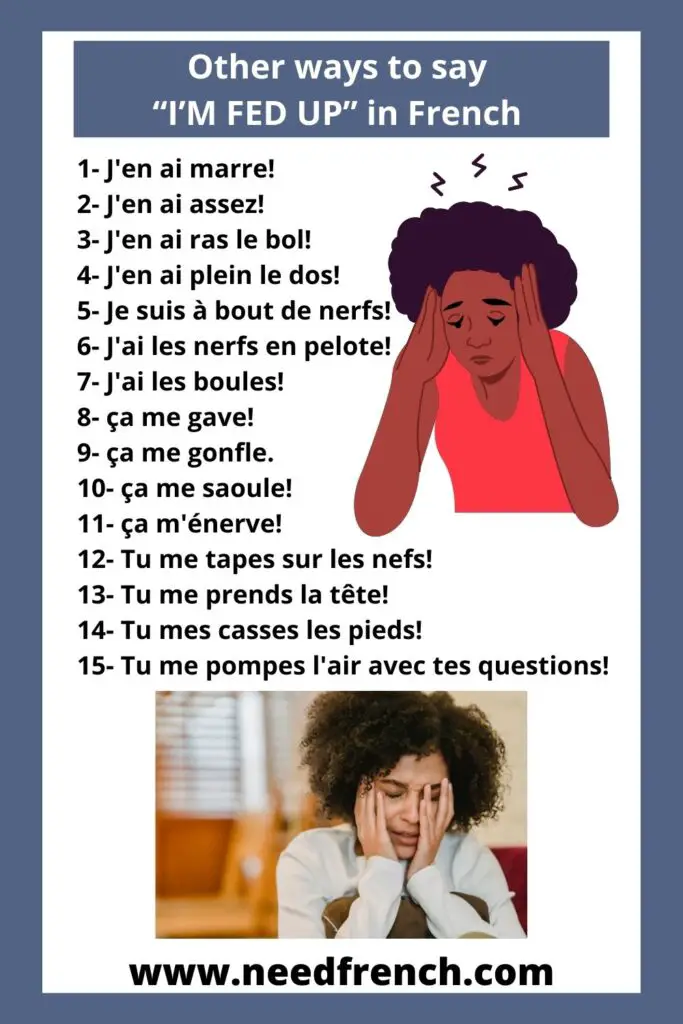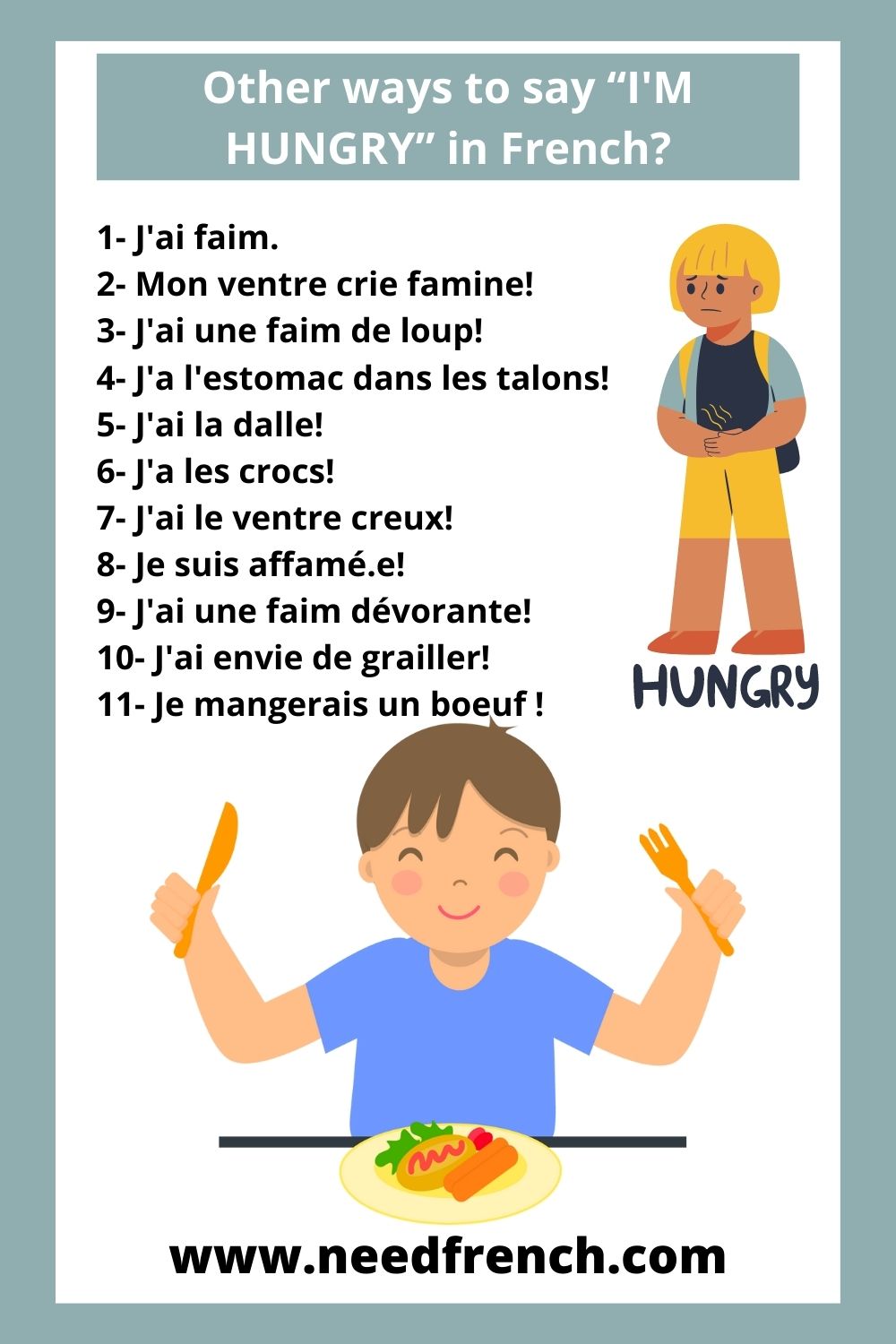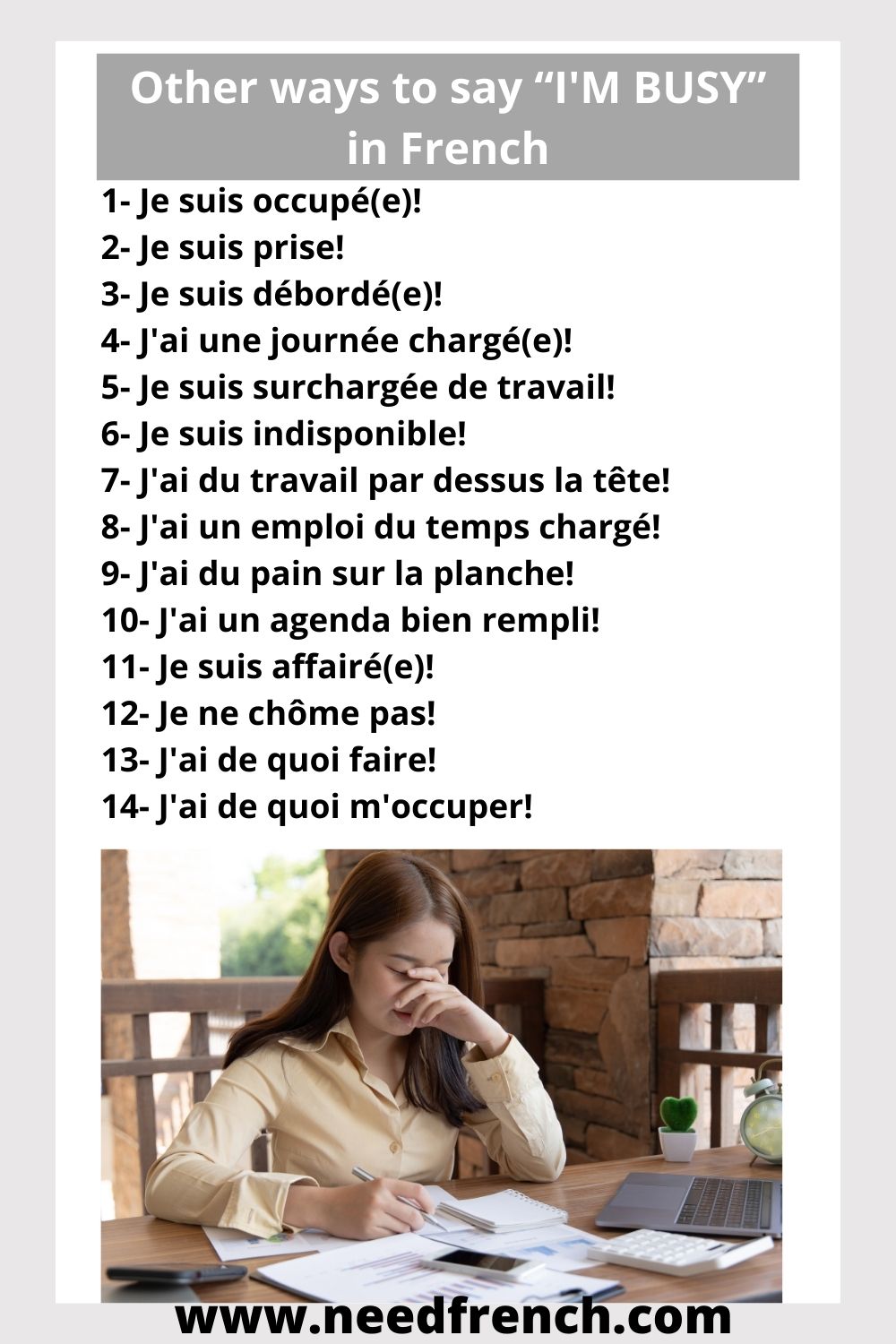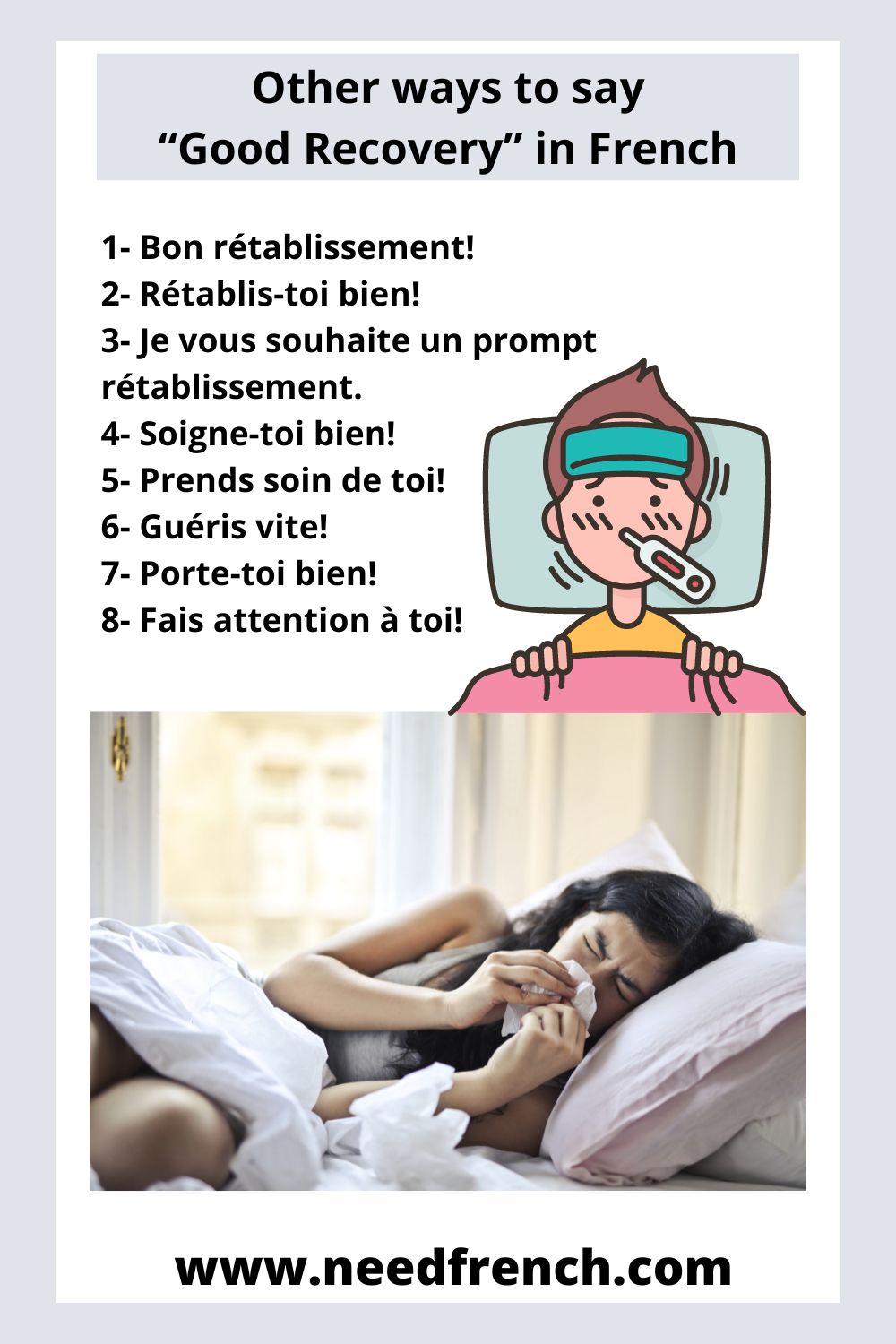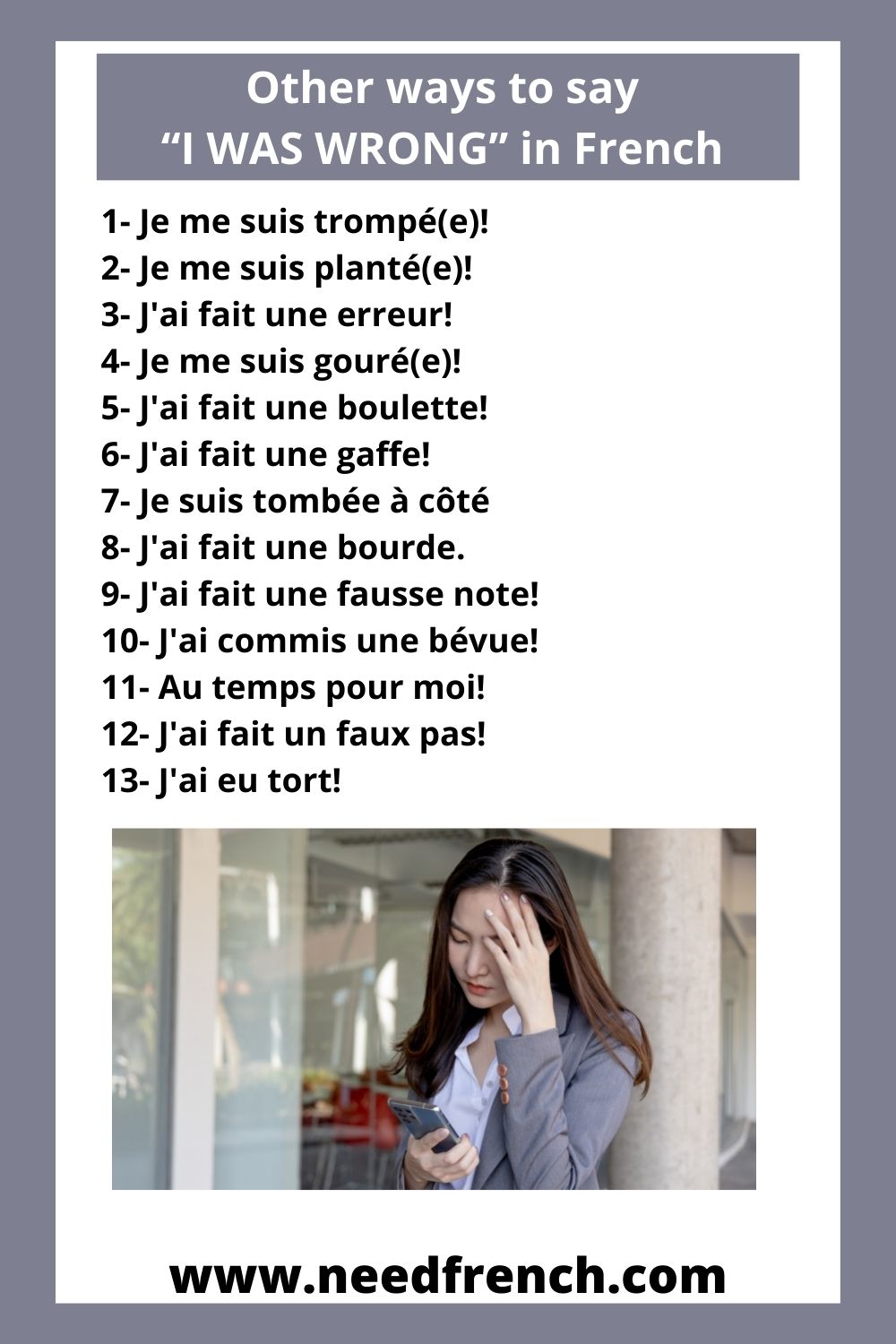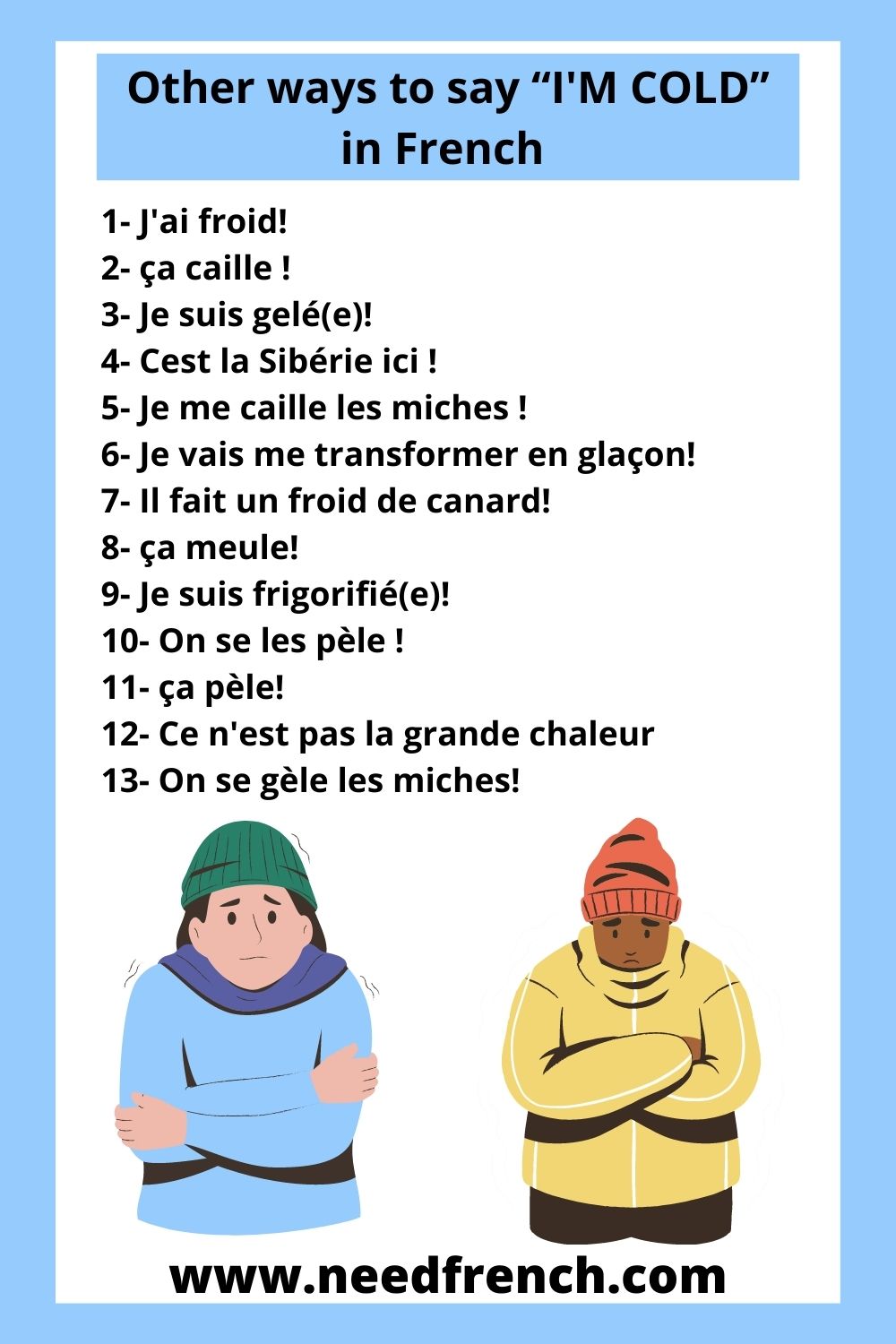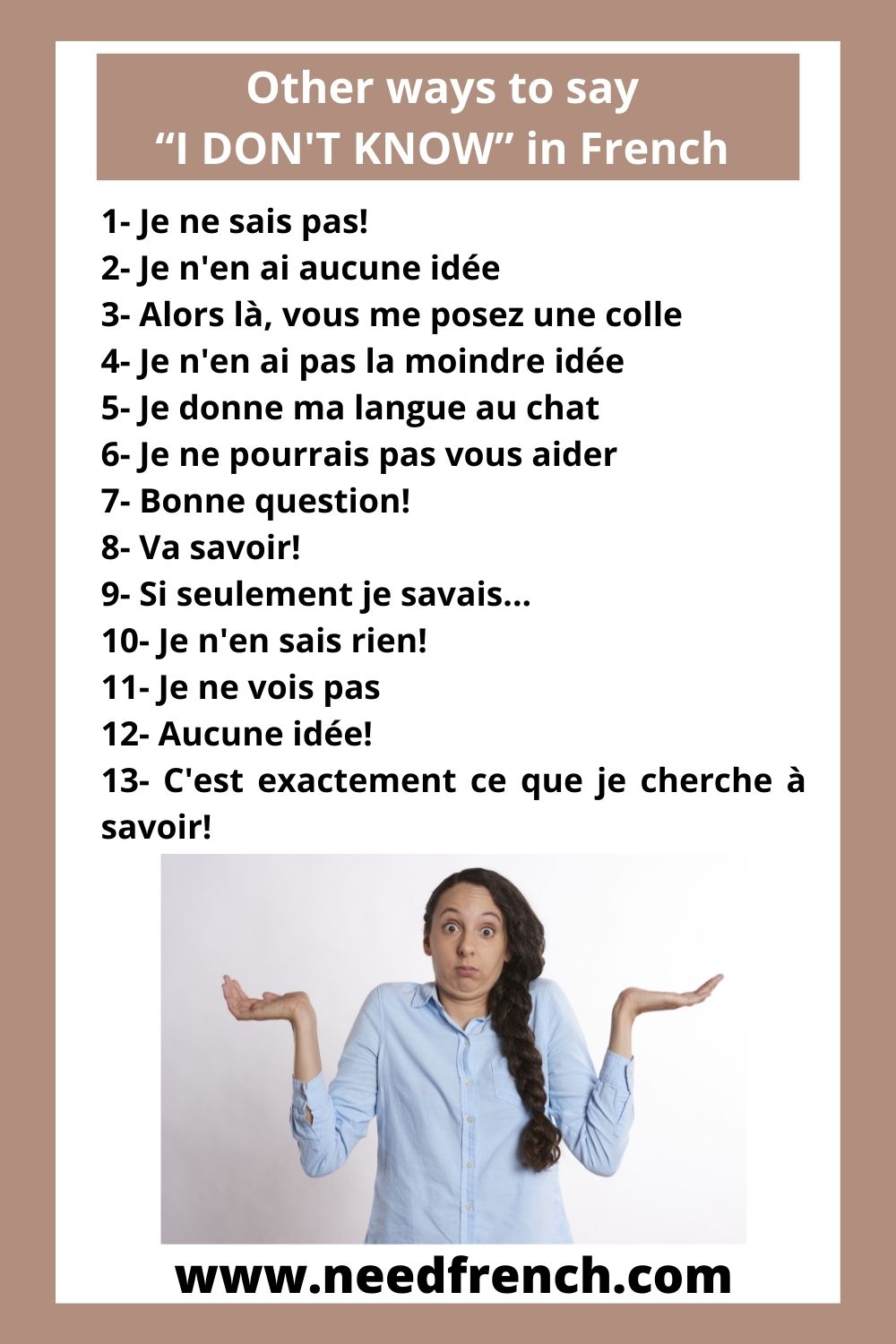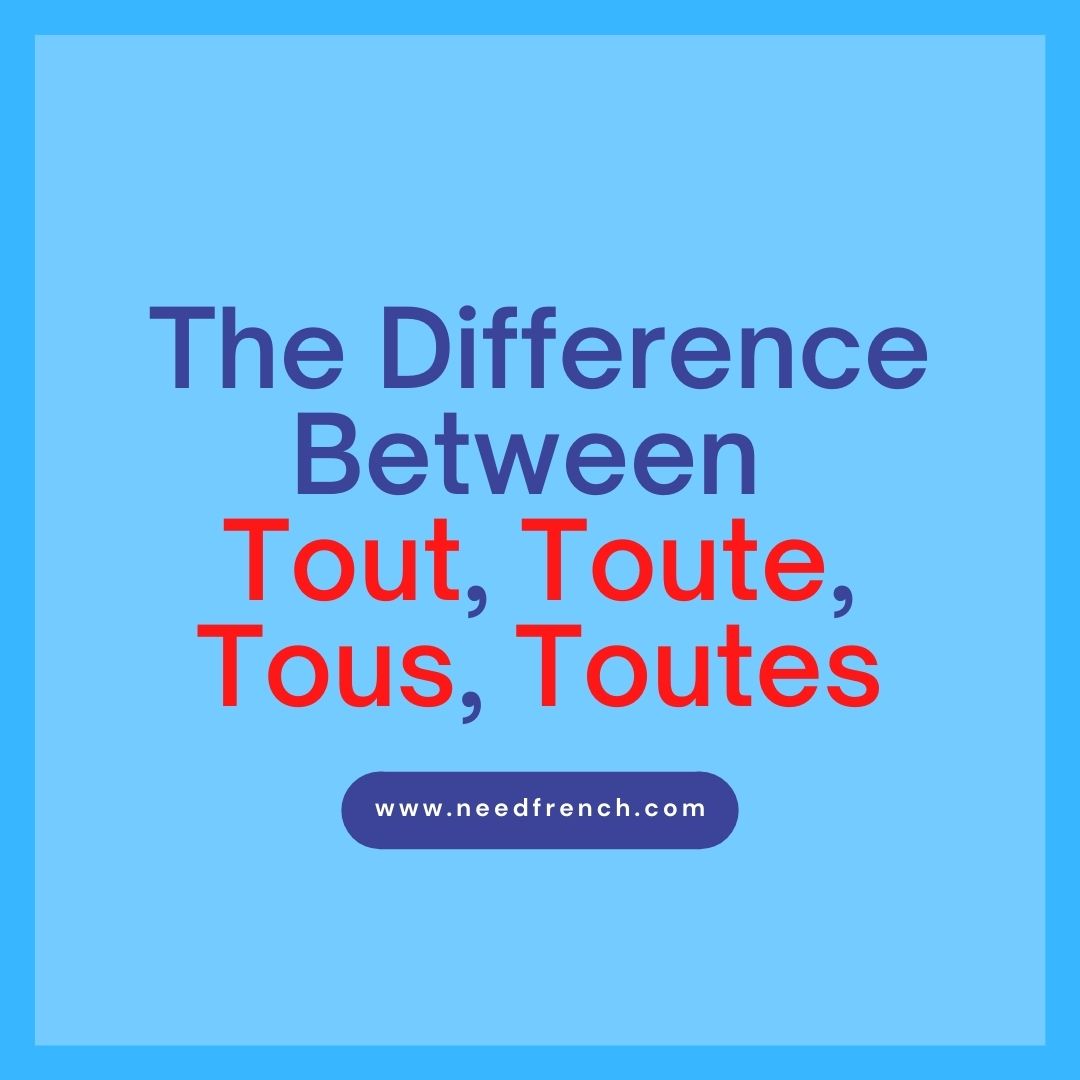Are you learning French and want to express your frustration like a native speaker? Look no further! In this article, we’ll explore 15 vibrant expressions to say “I’m fed up” in French, ranging from formal to very informal. These phrases will add flair to your language skills and help you navigate various situations with confidence.
Table of Contents
ToggleThe Classic: “J’en ai marre!”
Before we dive into the alternatives, let’s start with the most common expression:
- J’en ai marre! – This is the French equivalent of “I’m fed up!” or “I’ve had enough!” Formality: Informal – Widely used in everyday conversations.
14 More Ways to Express Your Frustration
Now, let’s explore other colorful expressions to convey the same feeling:
- J’en ai assez! – Literally “I have enough of it!” Formality: Neutral to Formal – Suitable for most situations, including professional settings.
- J’en ai ras le bol! – Imagine your bowl is filled to the brim with frustration! Formality: Informal – Best used among friends or in casual settings.
- J’en ai plein le dos! – Picture carrying a heavy backpack of annoyance. Formality: Informal – Similar usage to “J’en ai ras le bol!”
- Je suis à bout de nerfs! – When your nerves are at their limit. Formality: Neutral – Can be used in most situations, including semi-formal contexts.
- J’ai les nerfs en pelote! – Your nerves are all tangled up like a ball of yarn. Formality: Informal – More colorful and expressive, best for casual conversations.
- J’ai les boules! – A casual way to express anger or disappointment. Formality: Very Informal – Use only with close friends or in very relaxed settings.
- Ça me gave! – When something is really getting on your nerves. Formality: Very Informal – Similar usage to “J’ai les boules!”
- Ça me gonfle. – Literally “It inflates me,” meaning you’re fed up. Formality: Informal – Common in everyday speech, but avoid in professional contexts.
- Ça me saoule! – As if the situation is making you feel drunk with frustration. Formality: Very Informal – Popular among younger people, but quite casual.
- Ça m’énerve! – Simply put, “It’s annoying me!” Formality: Neutral to Informal – Widely acceptable in many situations.
- Tu me tapes sur les nerfs! – When someone is “tapping on your nerves.” Formality: Informal – Direct and expressive, best used with people you know well.
- Tu me prends la tête! – Literally “You’re taking my head,” meaning you’re driving me crazy. Formality: Informal – Similar usage to “Tu me tapes sur les nerfs!”
- Tu me casses les pieds! – You’re “breaking my feet” with your annoying behavior. Formality: Informal to Very Informal – Quite strong, use cautiously.
- Tu me pompes l’air avec tes questions! – You’re sucking the air out of me with your questions! Formality: Very Informal – Quite harsh, use only in very casual situations or with close friends.
How to Use These Expressions
- In formal situations, stick to neutral expressions like “J’en ai assez” or “Je suis à bout de nerfs.”
- For everyday conversations, “J’en ai marre” or “Ça m’énerve” are safe choices.
- Save the very informal expressions for close friends or when you want to express strong frustration.
- Be aware that the expressions directed at a person (like “Tu me casses les pieds!”) can be quite confrontational.
Practice Activity
Try using these expressions in different scenarios, considering the formality of each situation:
- Your colleague is consistently late for meetings. (Professional setting)
- Your computer crashes just before you save an important document. (Personal frustration)
- Your best friend cancels plans at the last minute for the third time. (Casual setting)
Which expression would you use in each situation? Practice saying them out loud to improve your pronunciation!
Conclusion
Learning these expressions will not only enrich your French vocabulary but also help you express yourself more naturally in various contexts. Remember, the key to using these phrases effectively is understanding their level of formality and the social situation you’re in.
What’s your favorite way to say “I’m fed up” in French? Do you know any other expressions we didn’t cover? Share your thoughts in the comments below!
